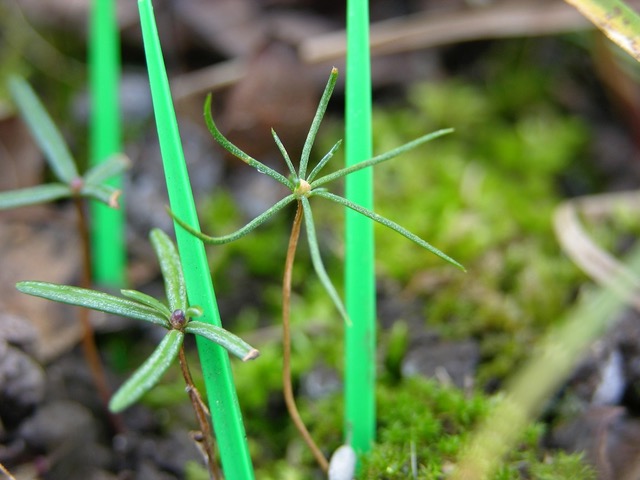I have great faith in a seed. Convince me that you have a seed there, and I am prepared to expect wonders.” ~ Henry David Thoreau
As Thoreau notes, seeds are magic. Yet, seeds are also extremely sensitive. Seedlings, without the energy reserves or extensive root systems of adult plants, only thrive within a narrow range of conditions. Warming temperatures and altered precipitation patterns (both drought and heavy rain events) are creating conditions that limit seedling establishment.
Recent research published in the journal Plant Ecology and co-authored by Schoodic Institute Forest Ecology Program Director, Dr. Nicholas Fisichelli examines tree seedling establishment at the temperate-boreal forest ecotone. This work took place in Minnesota – at the western edge of the forest type that extends all the way to Maine and the Maritime provinces of Canada. The experiment included warming and precipitation treatments of forest plots to simulate future climate conditions. Heat lamps warmed the temperature aboveground and soil heating coils warmed the temperature below ground. Retractable rain-out shelters omitted half the rainfall events from a subset of plots.
Warmer temperatures and drier conditions reduced the number of tree species able to establish and survive. The research points to the potential for a seedling-driven biodiversity bottleneck in our forests. Specifically, the inability of (warm-adapted) temperate species to fill the voided niches of (cold-adapted) boreal species may have long-term implications for forest composition, structure, and function.
Seeds are the future forest. Exploring seed and seedling dynamics is focal research of the Schoodic Institute Forest Ecology Program and key to understanding our forests and responses to warming temperatures and other global changes.
